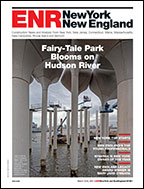Our administration didn't build it, but we won't rip it out to put back the elevated artery. Yes, it was expensive and oversight was mismanaged. But we have to manage it. It is incumbent upon us to inform the public and let them know what we're doing to address those issues.
What policies will cultivategreater public trust in MassDOT's operational procedures?
Being available, whether through social media or traditional media. The public is invited to participate in board meetings and public advisory committees. At the T, we publish a scorecard monthly for safety, ridership and on-time performance. We plan to announce a similar plan with [other] key performance indicators at MassDOT.
With budgets under pressure, how will you fund new initiatives and maintain existing infrastructure?
For transit, we have done a lot without cutting service or raising fares, but we are running out of those opportunities. In the next year, the MBTA will consider significant fare increases and service cuts. For highway work, there are not enough resources. Legislation will have to address what kind of transportation system we want and the resources required.
Some contractors say that Massachusetts transportation projects impose more onerous conditions than in neighboring states. How do you plan to improve conditions for contractors without compromising the safety, cost or the quality of work?
We are looking forward to working with the industry to improve project-delivery approvals and are adopting new procurement design and construction techniques. Massachusetts has adopted CM-at-risk and is working closely at the beginning of a project to ensure it is properly scoped and designed.
For more information, go to www.mbta.com/about_the_mbta/leadership/RichardDavey/


